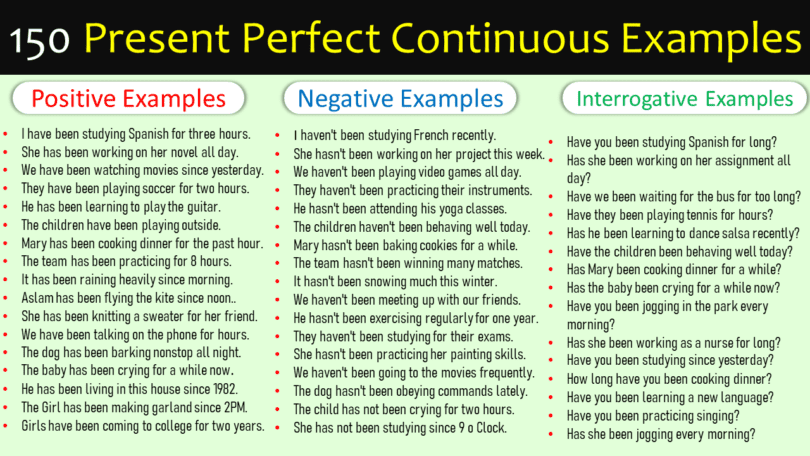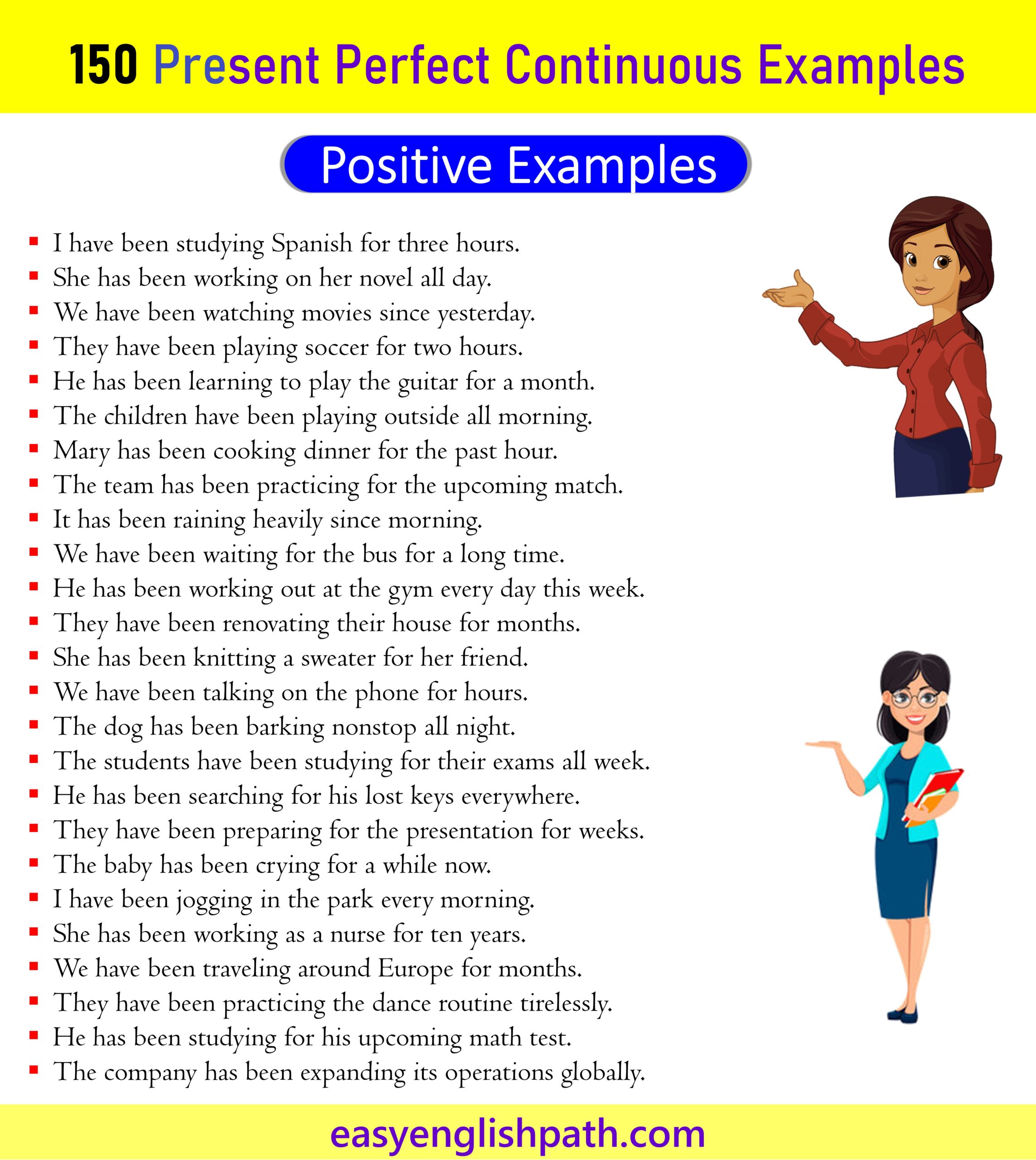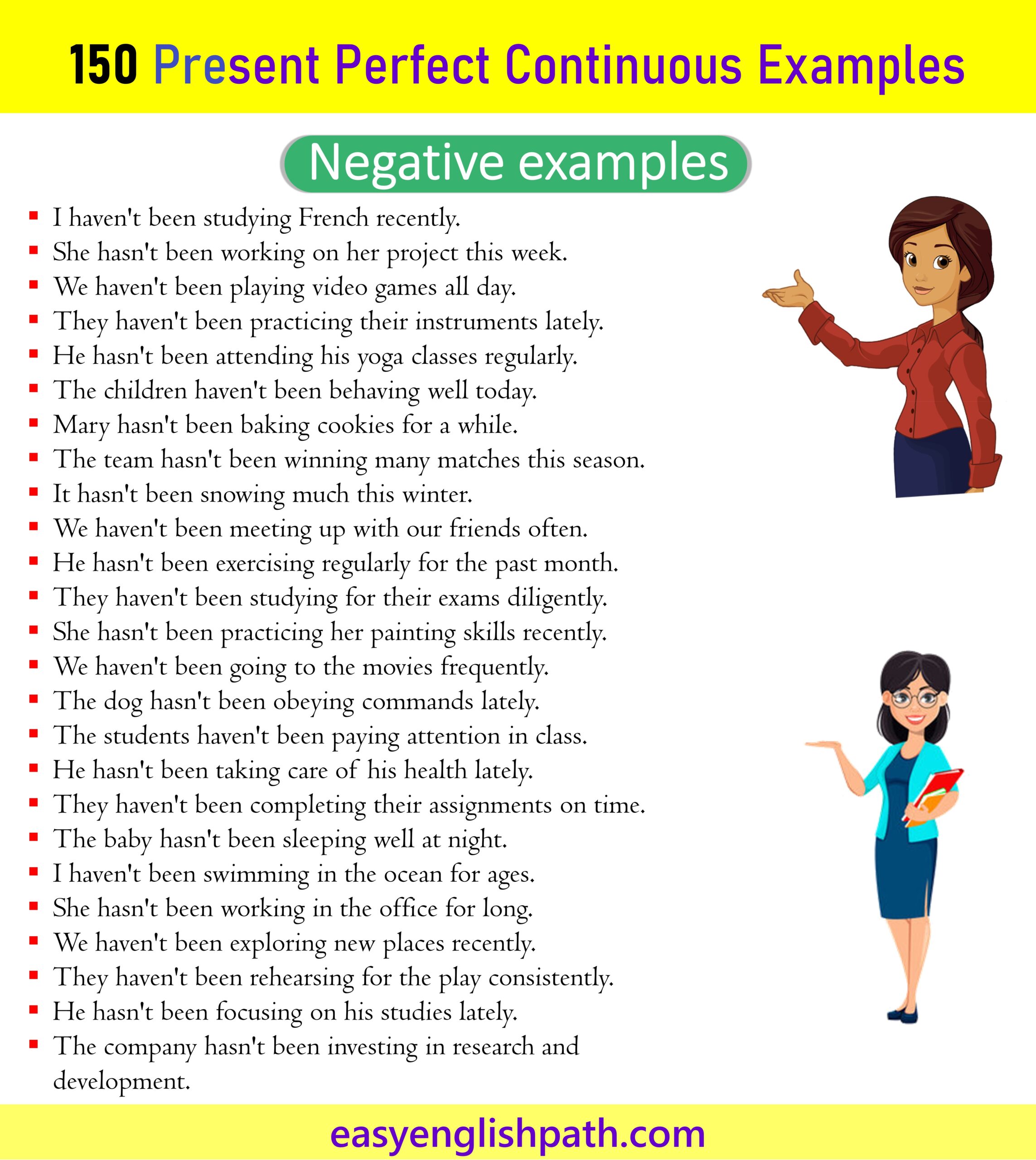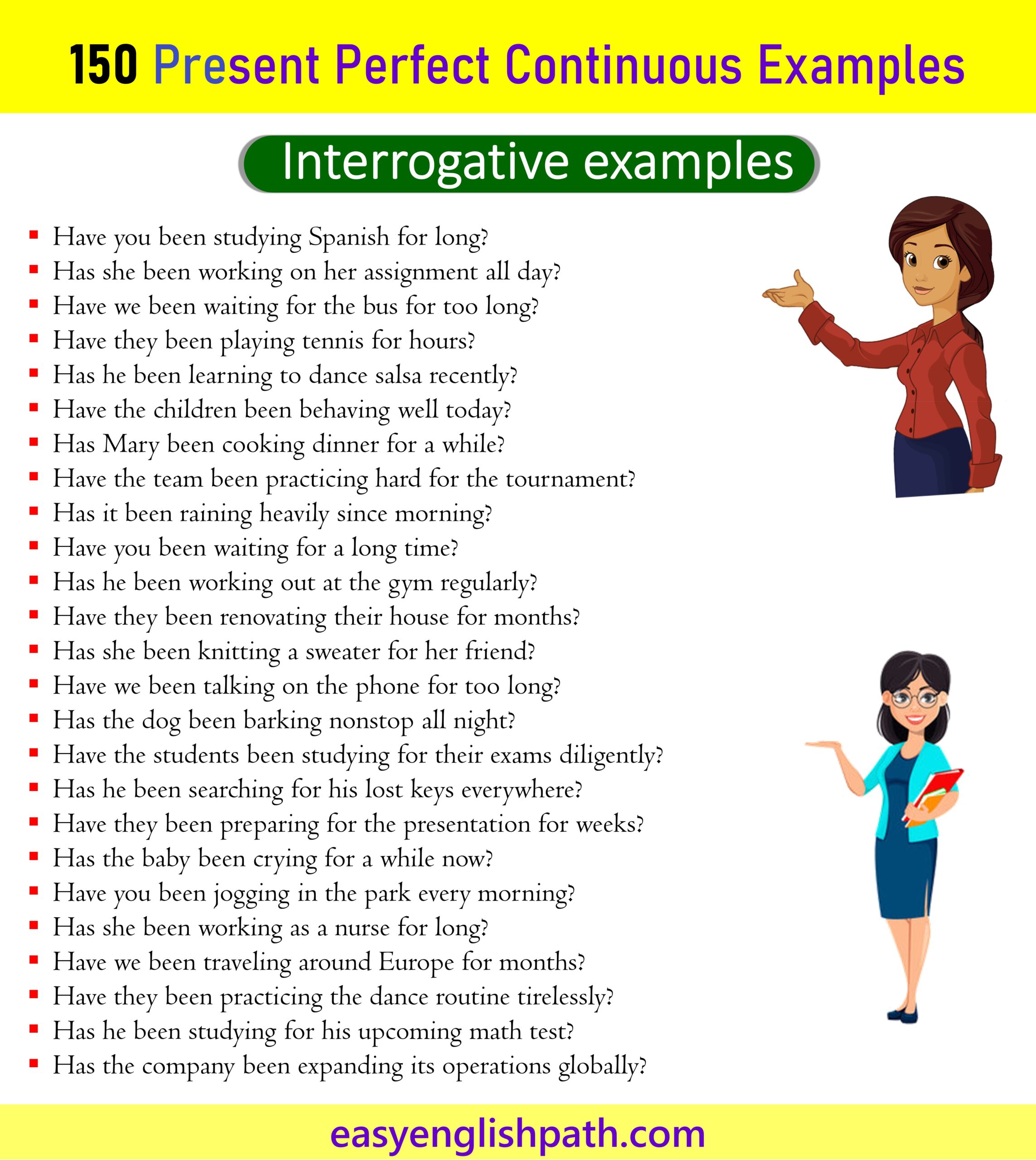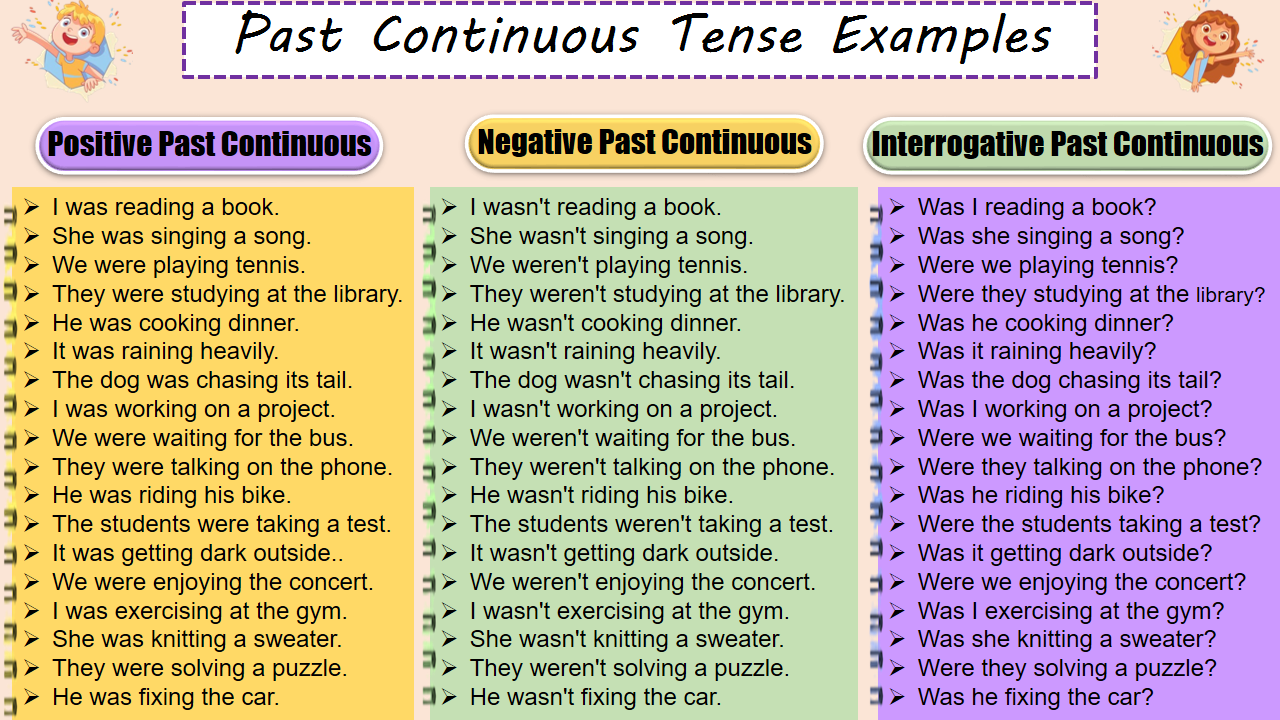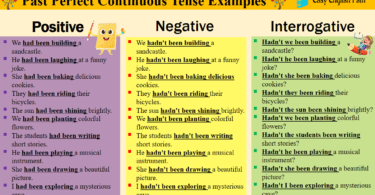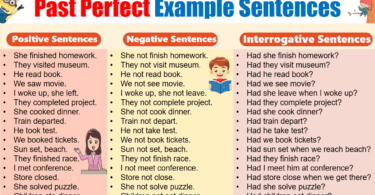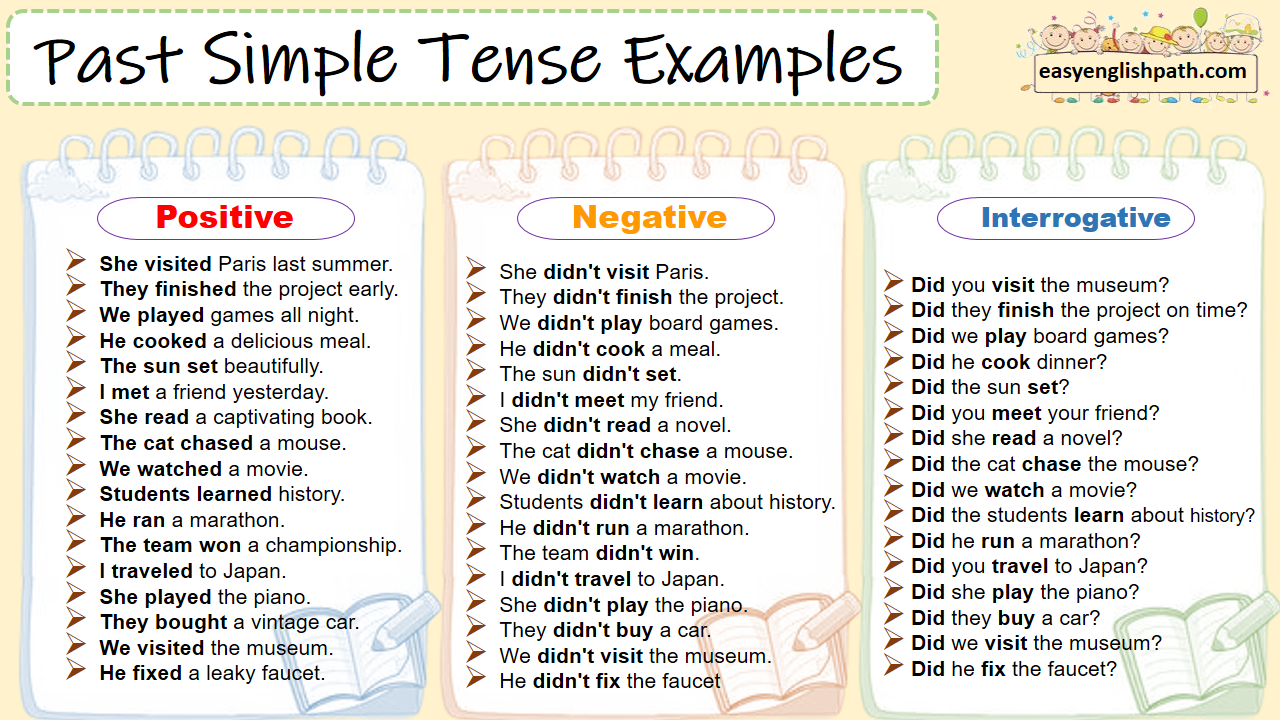In the world of English grammar, there’s a tense called Present Perfect Continuous, and it’s not as complicated as it sounds. This tense helps us talk about actions that started in the past, are still going on in the present, and might continue. Let’s dive into some simple Present Perfect Continuous examples to see how it works in everyday situations. Imagine you have a friend, Sarah, who’s been practicing playing the guitar for hours. You can say, “Sarah has been playing the guitar.” Here, “has been playing” is the Present Perfect Continuous tense, telling us that the action (playing the guitar) started in the past and is still happening right now.
Now, let’s say you’re out with your family for a picnic. You’ve been enjoying the sunshine for a while, and you want to talk about it. You can say, “We have been having a picnic.” Again, “have been having” shows that the picnic started earlier, and you’re still having a great time. In these simple examples, you can see how the Present Perfect Continuous tense helps us explain ongoing actions. It’s like a window into the past, present, and maybe even the future, all in one sentence. We use it when something started in the past and is still happening or has just finished.
Shyari, also known as Shayari, is a cherished tradition in many cultures, particularly in the Indian subcontinent. This lyrical art form uses rhythmic words to convey deep feelings, thoughts, and experiences. Whether expressing love, sorrow, happiness, or longing, Shyari connects people on an emotional level.
Whether you’re learning English, teaching it, or just curious about how language works, understanding the Present Perfect Continuous with easy examples can make grammar feel less daunting. So, let’s explore more everyday scenarios together to see how this tense fits naturally into our conversations.
Present Perfect Continuous Tense Examples
Present Perfect Continuous Positive Sentences:
- I have been studying Spanish for three hours.
- She has been working on her novel all day.
- We have been watching movies since yesterday.
- They have been playing soccer for two hours.
- He has been learning to play the guitar for a month.
- The children have been playing outside all morning.
- Mary has been cooking dinner for the past hour.
- The team has been practicing for the upcoming match.
- It has been raining heavily since morning.
- We have been waiting for the bus for a long time.
- He has been working out at the gym every day this week.
- They have been renovating their house for months.
- She has been knitting a sweater for her friend.
- We have been talking on the phone for hours.
- The dog has been barking nonstop all night.
- The students have been studying for their exams all week.
- He has been searching for his lost keys everywhere.
- They have been preparing for the presentation for weeks.
- The baby has been crying for a while now.
- I have been jogging in the park every morning.
- She has been working as a nurse for ten years.
- We have been traveling around Europe for months.
- They have been practicing the dance routine tirelessly.
- He has been studying for his upcoming math test.
- The company has been expanding its operations globally.
Negative Sentences:
- I haven’t been studying French recently.
- She hasn’t been working on her project this week.
- We haven’t been playing video games all day.
- They haven’t been practicing their instruments lately.
- He hasn’t been attending his yoga classes regularly.
- The children haven’t been behaving well today.
- Mary hasn’t been baking cookies for a while.
- The team hasn’t been winning many matches this season.
- It hasn’t been snowing much this winter.
- We haven’t been meeting up with our friends often.
- He hasn’t been exercising regularly for the past month.
- They haven’t been studying for their exams diligently.
- She hasn’t been practicing her painting skills recently.
- We haven’t been going to the movies frequently.
- The dog hasn’t been obeying commands lately.
- The students haven’t been paying attention in class.
- He hasn’t been taking care of his health lately.
- They haven’t been completing their assignments on time.
- The baby hasn’t been sleeping well at night.
- I haven’t been swimming in the ocean for ages.
- She hasn’t been working in the office for long.
- We haven’t been exploring new places recently.
- They haven’t been rehearsing for the play consistently.
- He hasn’t been focusing on his studies lately.
- The company hasn’t been investing in research and development.
Present Perfect Continuous Interrogative Sentences:
- Have you been studying Spanish for long?
- Has she been working on her assignment all day?
- Have we been waiting for the bus for too long?
- Have they been playing tennis for hours?
- Has he been learning to dance salsa recently?
- Have the children been behaving well today?
- Has Mary been cooking dinner for a while?
- Have the team been practicing hard for the tournament?
- Has it been raining heavily since morning?
- Have you been waiting for a long time?
- Has he been working out at the gym regularly?
- Have they been renovating their house for months?
- Has she been knitting a sweater for her friend?
- Have we been talking on the phone for too long?
- Has the dog been barking nonstop all night?
- Have the students been studying for their exams diligently?
- Has he been searching for his lost keys everywhere?
- Have they been preparing for the presentation for weeks?
- Has the baby been crying for a while now?
- Have you been jogging in the park every morning?
- Has she been working as a nurse for long?
- Have we been traveling around Europe for months?
- Have they been practicing the dance routine tirelessly?
- Has he been studying for his upcoming math test?
- Has the company been expanding its operations globally?

